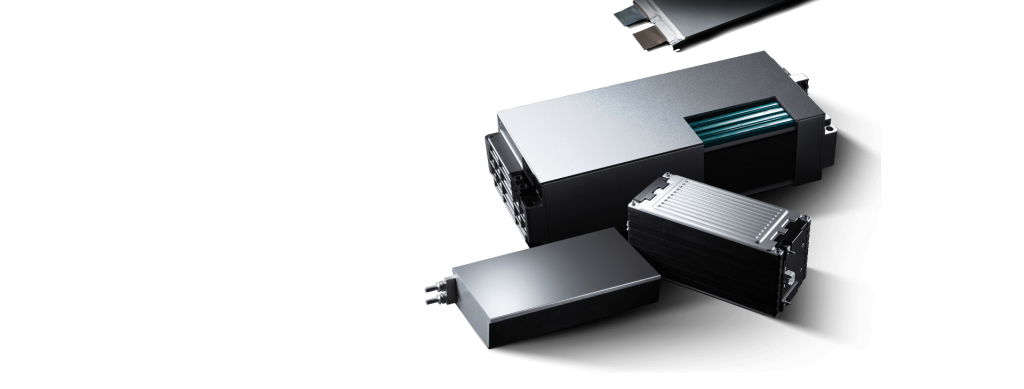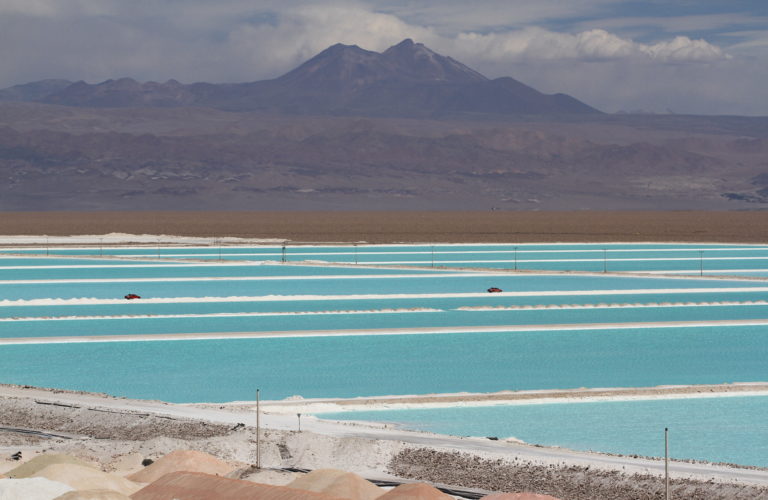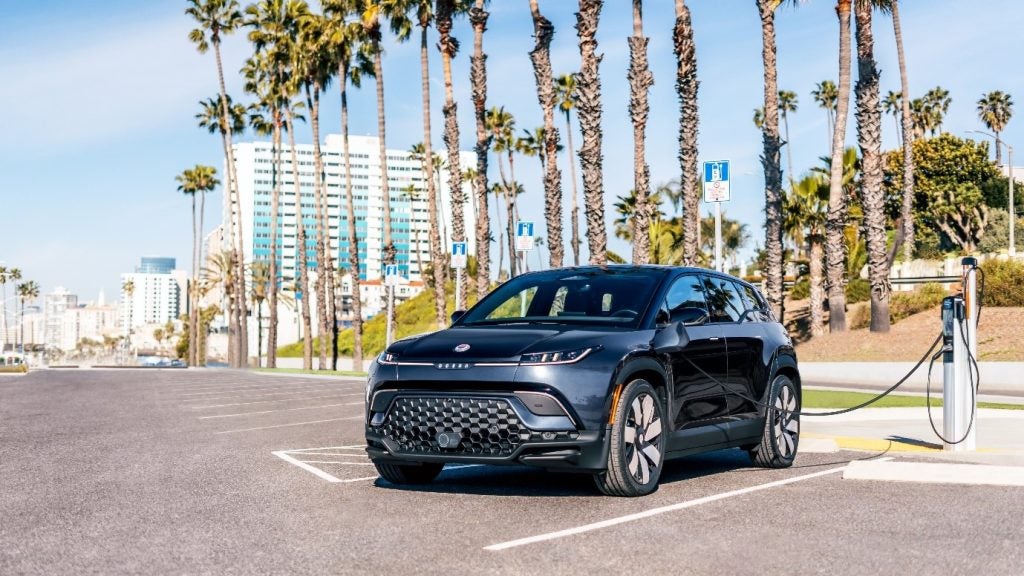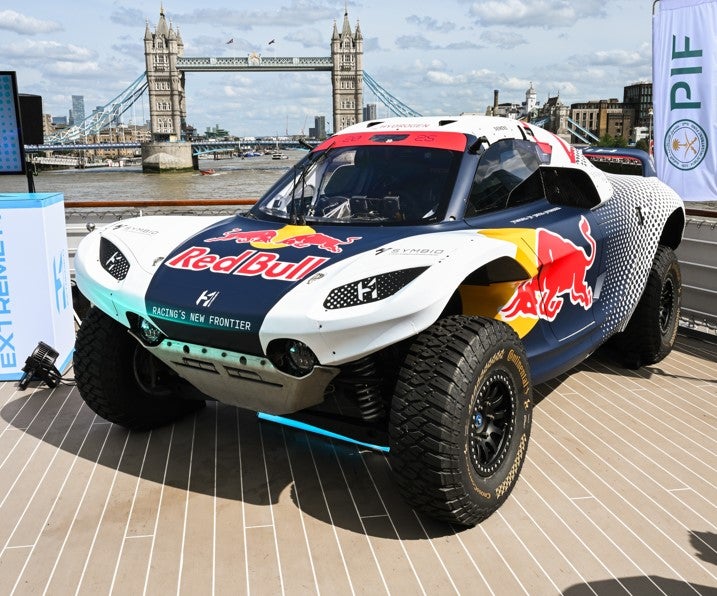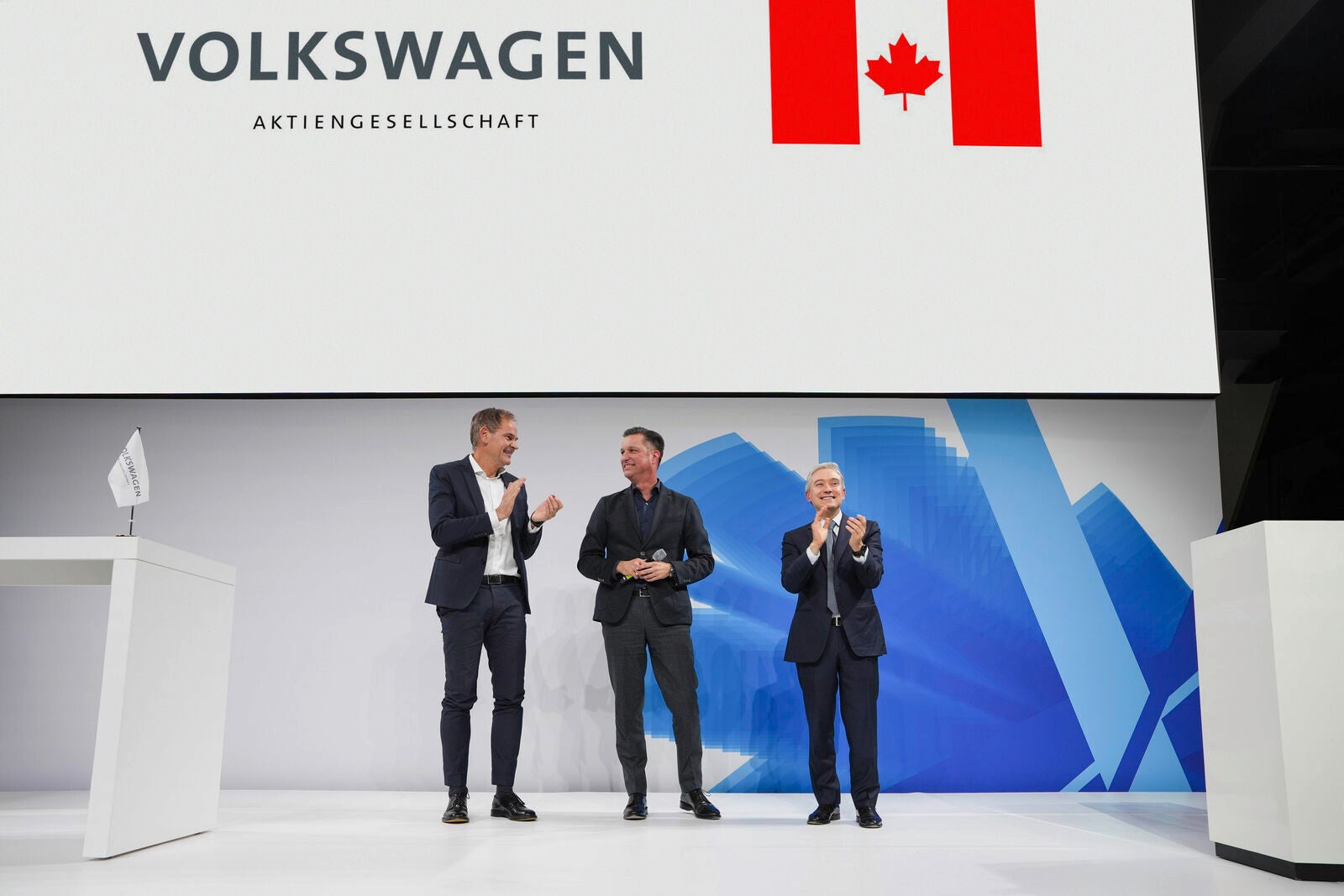
The Volkswagen Group is pushing ahead with its ambitious electric vehicle (EV) strategy in North America. Its battery company PowerCo SE aims to build its largest gigafactory to date in St. Thomas, Ontario/Canada with an annual production capacity of up to 90 GWh in the final expansion phase.
VW says the planned investment of up to €4.8 billion / CAD$ 7 billion until 2030 has the potential to create up to 3,000 highly skilled jobs at the factory and tens of thousands more indirect jobs in the region. The announcement was made in the presence of Canada’s Prime Minister, the Right Honourable Justin Trudeau, the Honourable François‑Philippe Champagne, Minister of Innovation, Science and Industry, Ontario’s Premier, the Honourable Doug Ford, the Honourable Victor Fedeli, Ontario’s Minister of Economic Development, Job Creation and Trade, and Joe Preston, Mayor of the City of St. Thomas.
Canada Prime Minister Justin Trudeau said: “When we talk about our made-in-Canada plan, we’re talking about creating good, middle-class jobs now and into the future, we’re talking about clean air for our kids and grandkids, and we’re talking about a strong economy that works for all Canadians. That’s what Volkswagen’s new electric vehicle battery plant in St. Thomas – the largest manufacturing plant in the country once built – is all about. It’s a win for workers, for the community, and for the economy.”
Thomas Schmall, Volkswagen Group Board Member for Technology added: “North America plays a key role in our global battery strategy. The region will become PowerCo SE’s second pillar beside Europe, with battery cells made in North America for North America. Gigafactory St. Thomas opens the door to a key market for e-mobility and battery cell production. We aim to make PowerCo a global player in the battery business and to pave the way for clean, sustainable mobility. Gigafactory St. Thomas is an important milestone in our roadmap.”
Volkswagen Group’s ambitious growth strategy in North America
St. Thomas is the company’s first overseas gigafactory for cell manufacturing and will equip the VW Group brands’ BEVs in the North American region with unified cells, a whole new cell technology designed for volume production.
How well do you really know your competitors?
Access the most comprehensive Company Profiles on the market, powered by GlobalData. Save hours of research. Gain competitive edge.

Thank you!
Your download email will arrive shortly
Not ready to buy yet? Download a free sample
We are confident about the unique quality of our Company Profiles. However, we want you to make the most beneficial decision for your business, so we offer a free sample that you can download by submitting the below form
By GlobalDataGroundbreaking is planned for 2024 and production is projected to begin in 2027. The cell factory is part of a larger plan that Volkswagen and PowerCo agreed upon with Canadian Prime Minister Justin Trudeau’s government in August last year. The Memorandum of Understanding signed at the time focusses on battery value creation and raw material security in order to promote e-mobility in the country.
VW maintains the decision to expand PowerCo SE’s cell production network to Canada is further proof of the ambitious growth strategy of the Volkswagen Group in North America. This includes the introduction of the broadest portfolio of full-electric vehicles in the United States and Canada by 2030, the expansion of Electrify America’s coast-to-coast charging network in the US and Canada as well as the announcement of the iconic Scout brand to deliver its first all-electric vehicles in 2026.
Frank Blome, CEO of PowerCo SE, said: “We are honoured to partner with Canada, Ontario, and the City of St. Thomas to take the EV industry to a new level. PowerCo was founded in Europe to make a difference in the battery business, offering cutting-edge cell technology and sustainable manufacturing. That includes the creation of up to 3,000 new jobs and great working conditions for our employees in theSt. Thomas area. We share the same values and are committed to be a reliable partner for the people in St. Thomas and Ontario.”
The cell factory is being built over an area of around 370 acres (150 hectares), which corresponds to more than 210 soccer or football fields. The entire industrial and supplier park amounts to 1,500 acres (600 hectares). Its strategic location about 30 km south of London, Ontario, is at the heart of the Great Lakes Automotive Corridor and near major cities such as Toronto and Detroit. That gives PowerCo prime access to the regional research and innovation cluster, talented workforce, good transport infrastructure and established supply chains. Furthermore, the cell factory will be supplied with 100 % CO2-free energy.
PowerCo update
The Volkswagen Group has made battery technology a core element of its 10 Point Plan aimed at speeding up the company’s transformation. Volkswagen set up PowerCo SE in Germany, a separate battery company, bundling the group’s global battery business across the entire value chain – from raw material supply and development to the construction and operation of gigafactories. S
Since its launch in July 2022, PowerCo SE has decided on the location of three cell factories in Salzgitter, Valencia and St. Thomas in North America. By 2030, PowerCo and partners are expected to generate annual revenue of over 20 billion euros.



